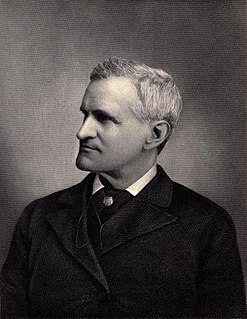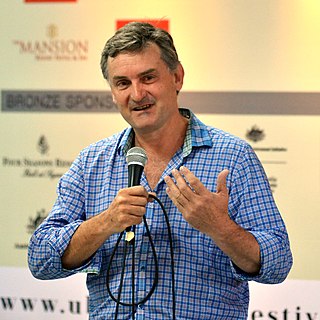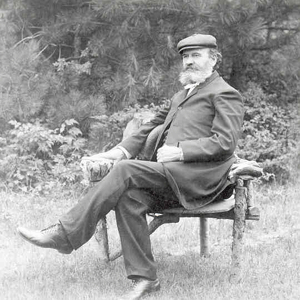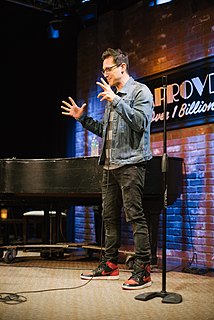A Quote by Francis Parkman
The young nobles, of whom there were many, were volunteers, who had paid their own expenses in expectation of a golden harvest, and they chafed in impatience and disgust. The religious element in the colony-unlike the former Huguenot emigration to Brazil--was evidently subordinate. The adventurers thought more of their fortunes than of their faith.
Related Quotes
Many Southern Plantation owners were working towards the day when they could convert their investment to more profitable industrial production as had been done in the North, and others felt that freemen who were paid wages would be more efficient than slaves who had no incentive to work. For the present, however, they were stuck with the system they inherited. They felt that a complete and sudden abolition of slavery with no transition period would destroy their economy and leave many of the former slaves to starve - all of which actually happened in due course.
There was a sort of irony in the fact that these [superhero] characters - many of whom in that period, the Golden Age, had been evolved to fight the Nazis - were themselves very much in the Nazi ideal. The idea that you can solve problems through physical strength, by being stronger and more dominant and more powerful - that is fascism. I mean, that's it, that's the essence of fascism. I don't think the creators of the superheroes or the kids who were reading them at the time were the slightest bit aware of it.
Australia is this former British colony at the foot of Asia. We've been involved - we've been in lockstep with America in every battle you have fought for a century. We were there in Vietnam. We were there in Korea. We were there in Iraq. We were there in Afghanistan. We are slightly apprehensive about the rise of China.
A friend ... said, "You were healed by faith." "Oh, no," I said, "I was healed by Christ." What is the difference? There is a great difference. There came a time when even faith seemed to come between me and Jesus. I thought I should have to work up the faith, so I laboured to get the faith. At last I thought I had it; that if I put my whole weight upon it, it would hold. I said, when I thought I had got the faith, "Heal me." I was trusting in myself, in my own heart, in my own faith. I was asking the Lord to do something for me because of something in me, not because of something in Him.
There are two main human sins from which all the others derive: impatience and indolence. It was because of impatience that they were expelled from Paradise; it is because of indolence that they do not return. Yet perhaps there is only one major sin: impatience. Because of impatience they were expelled, because of impatience they do not return.
There has been a religious revival because - let me put it like this, the people that weren't traditionally religious, conventionally religious, had a religion of their own in my youth. These were liberals who believed in the idea of progress or they were Marxists. Both of these secular religions have broken down.
There was a commonality in a lot of the private school experiences that I had of children whose lives were not their own. They thought they were their own, but they were essentially gifted this life by their parents. So they were spending money; they were going on trips - I guess, in a way, it is their life, but they didn't earn it.
The 2.4 million bright, brave, incredibly fit and remarkably talented young Americans who have served in our armed forces since we were attacked on 9-11-01 are all volunteers. As General Petraeus put it during a conversation we had in Afghanistan, 'They all came or stayed, knowing they were going to war.' For more than a decade, these patriots and their loved ones have made extraordinary sacrifices for this country. They embody the classical definition of heroes: those who put themselves at risk for the benefit of others.
We have long had emigration in Ireland. But the nature of emigration has changed. With ferries to Britain and the continent, as well as air travel, emigration isn't the cutoff it used to be. In addition, some of our young people are being educated to levels beyond our present capacity to provide the jobs they are qualified to do. So they go abroad. Many want to come back, especially when they have children they would want to be raised in the Irish society and in the Irish educational system.
In the olden times, the diversity of groups was largely a geographical matter. There were many societies, but each, within its own territory, was comparatively homogeneous. But with the development of commerce, transportation, intercommunication, and emigration, countries like the United States are composed of a combination of different groups with different traditional customs. It is this situation which has, perhaps more than any other one cause, forced the demand for an educational institution which shall provide something like a homogeneous and balanced environment for the young.
There have, for years, been comparative studies of religious fanaticism and factors that correlate with it. By and large, it tends to decline with increasing industrialization and education. The US, however, is off the chart, ranking near devastated peasant societies. About 1/2 the population believe the world was created a few thousand years ago: the justification for the belief is that that is what they were ordered to believe by authority figures to whom they were taught one must subordinate oneself. And on, and on.







































